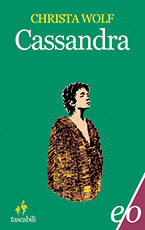What do you think?
Rate this book


159 pages, Paperback
First published January 1, 1983

The character continually changes as I occupy myself with the material; the deadly seriousness, and everything heroic and tragic, is disappearing; accordingly, compassion and unilateral bias in her favor are disappearing, too. I view her more soberly, even with irony and humor. I see through her.

Who was Cassandra before anyone wrote about her?
Meanwhile, we talk about the situation, arrive at the conclusion that it no longer bears thinking about. And yet we cannot help thinking about it.
How can you teach younger people the technique of living without alternatives, and yet living? When did it begin? we ask. Was this course of events inevitable?